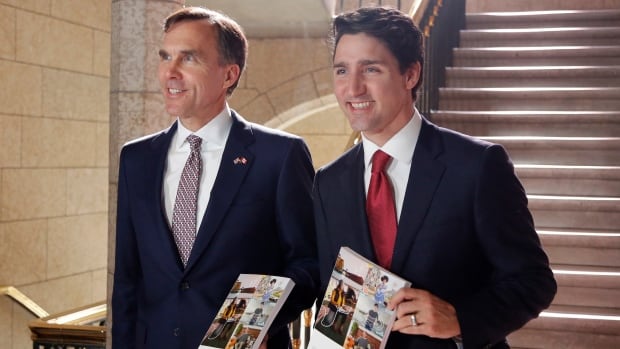The Trump Administration's Immigration Policies: A Legal Analysis

Table of Contents
The Travel Ban (Executive Order 13769 and its successors):
Constitutional Challenges and Supreme Court Rulings:
Executive Order 13769, commonly known as the "travel ban," faced immediate and significant legal challenges. Critics argued the ban violated the First Amendment by exhibiting religious discrimination against Muslim-majority countries. Furthermore, the scope of the President's executive authority in immigration matters was heavily debated.
- Supreme Court Cases: The Supreme Court heard several cases related to the travel ban, most notably Trump v. Hawaii. The Court's decision ultimately upheld the ban, albeit with some modifications, focusing on the government's national security interests.
- Evolving Legal Arguments: The legal arguments shifted over time. Initially, the focus was on the overt religious bias. Later, the defense centered on national security concerns, claiming the ban was necessary to protect the US from terrorism.
- National Security vs. Religious Freedom: The core of the legal battle revolved around balancing national security interests against the constitutional right to religious freedom. The Supreme Court's decision attempted to navigate this complex interplay, resulting in a controversial but ultimately legally sound ruling (according to the court).
Implementation and Enforcement:
Implementing the travel ban presented considerable practical challenges. Visa processing times increased dramatically, causing significant delays and disruption for international travelers.
- Denied Visas and Deportations: Precise figures on denied visas and deportations directly attributable to the ban are difficult to isolate, due to other contributing factors in immigration processes. However, reports from various human rights organizations illustrate a demonstrable impact.
- Role of Customs and Border Protection (CBP): CBP played a crucial role in enforcing the ban, leading to increased scrutiny and potential for discriminatory application.
- Economic and Social Consequences: The ban had wide-ranging economic and social consequences, affecting international trade, tourism, and academic collaborations. The ripple effects are still being assessed.
Changes to Asylum Procedures:
The "Remain in Mexico" Policy (MPP):
The Migrant Protection Protocols (MPP), informally known as the "Remain in Mexico" policy, required asylum seekers to wait in Mexico while their cases were processed in the US.
- Legal Challenges to MPP: Numerous legal challenges argued that the MPP violated US and international law regarding the treatment of asylum seekers, citing safety and access to legal representation issues.
- Asylum Seekers Affected: Tens of thousands of asylum seekers were subjected to the MPP, facing dangerous conditions in Mexico while awaiting their hearings.
- Human Rights Concerns: The policy raised serious human rights concerns, including violence, kidnapping, and lack of access to basic necessities for asylum seekers in Mexico.
Restrictions on Asylum Eligibility:
The Trump administration implemented stricter criteria for asylum claims, making it more difficult for individuals to qualify for asylum.
- Stricter Interpretations of Asylum Law: The administration narrowed the definition of credible fear, impacting the number of individuals allowed to pursue their asylum claims in the US.
- Impact on Asylum Success Rates: Asylum success rates dropped significantly under these stricter criteria, particularly affecting vulnerable populations like women and children fleeing domestic violence or persecution.
- Due Process Rights: The changes to asylum procedures raised concerns about the due process rights of asylum seekers, as the accelerated process often prevented adequate legal representation and fair consideration of their claims.
Increased Border Security and Enforcement:
The "Zero Tolerance" Policy and Family Separation:
The "zero tolerance" policy resulted in the separation of thousands of families at the border, sparking widespread condemnation.
- Legal Challenges: The policy faced significant legal challenges, with lawsuits arguing that family separation caused irreparable harm to children and violated their constitutional rights.
- Psychological Impact on Children: The separation of families inflicted severe trauma on children, leading to long-term psychological consequences. Studies demonstrated profound and lasting effects on children's mental health.
- Government's Defense: The government argued that the policy was necessary to deter illegal immigration, but the ethical and legal ramifications were heavily criticized.
Expansion of Immigration Detention:
The Trump administration expanded immigration detention capacity and lengthened detention periods.
- Legal Challenges to Detention Conditions: Lawsuits challenged the legality and humanity of detention conditions, citing issues like overcrowding, inadequate medical care, and lack of access to legal counsel.
- Impact on Detainee Health: Prolonged detention had a detrimental impact on the mental and physical health of detainees, including reports of increased rates of depression, anxiety, and other health problems.
- Detention Rates and Lengths of Stay: Statistics revealed a significant increase in both the number of individuals detained and the duration of their detention.
DACA (Deferred Action for Childhood Arrivals):
Legal Challenges and Uncertain Future:
The Deferred Action for Childhood Arrivals (DACA) program, which protects undocumented immigrants brought to the US as children, faced repeated legal challenges under the Trump administration.
- Supreme Court Decision on DACA: The Supreme Court blocked the Trump administration's attempt to completely rescind DACA, but the program's long-term future remained uncertain.
- Political and Legal Uncertainty: The political landscape surrounding DACA remained volatile, leaving the fate of Dreamers in constant jeopardy.
- Impact on the Lives of Dreamers: The ongoing legal battles and uncertainty surrounding DACA's future cast a shadow over the lives and futures of Dreamers, impacting their education, employment, and overall well-being.
Conclusion:
The Trump administration's immigration policies profoundly reshaped the US immigration system, sparking numerous legal challenges and intense public debate. This analysis highlights the complex legal and ethical issues involved, including constitutional questions, human rights concerns, and questions surrounding executive authority. Understanding the legal ramifications of these policies is crucial for informed discourse and shaping future immigration policy. Further research and legal analysis are essential to fully grasp the long-term impacts of Trump Administration Immigration Policies. For ongoing updates on immigration law and policy, consult legal experts and reputable news sources specializing in immigration law.

Featured Posts
-
 Miami Steakhouse John Travoltas Pulp Fiction Culinary Experience Video
Apr 24, 2025
Miami Steakhouse John Travoltas Pulp Fiction Culinary Experience Video
Apr 24, 2025 -
 Strategic Partnership Saudi Arabia And India To Construct Two Oil Refineries
Apr 24, 2025
Strategic Partnership Saudi Arabia And India To Construct Two Oil Refineries
Apr 24, 2025 -
 The Bold And The Beautiful April 16th Recap Hopes Concerns And Bridgets Revelation
Apr 24, 2025
The Bold And The Beautiful April 16th Recap Hopes Concerns And Bridgets Revelation
Apr 24, 2025 -
 Is Canadas Vision Missing Fiscal Responsibility A Look At Liberal Spending
Apr 24, 2025
Is Canadas Vision Missing Fiscal Responsibility A Look At Liberal Spending
Apr 24, 2025 -
 White House Fewer Individuals Apprehended At The U S Canada Border
Apr 24, 2025
White House Fewer Individuals Apprehended At The U S Canada Border
Apr 24, 2025
